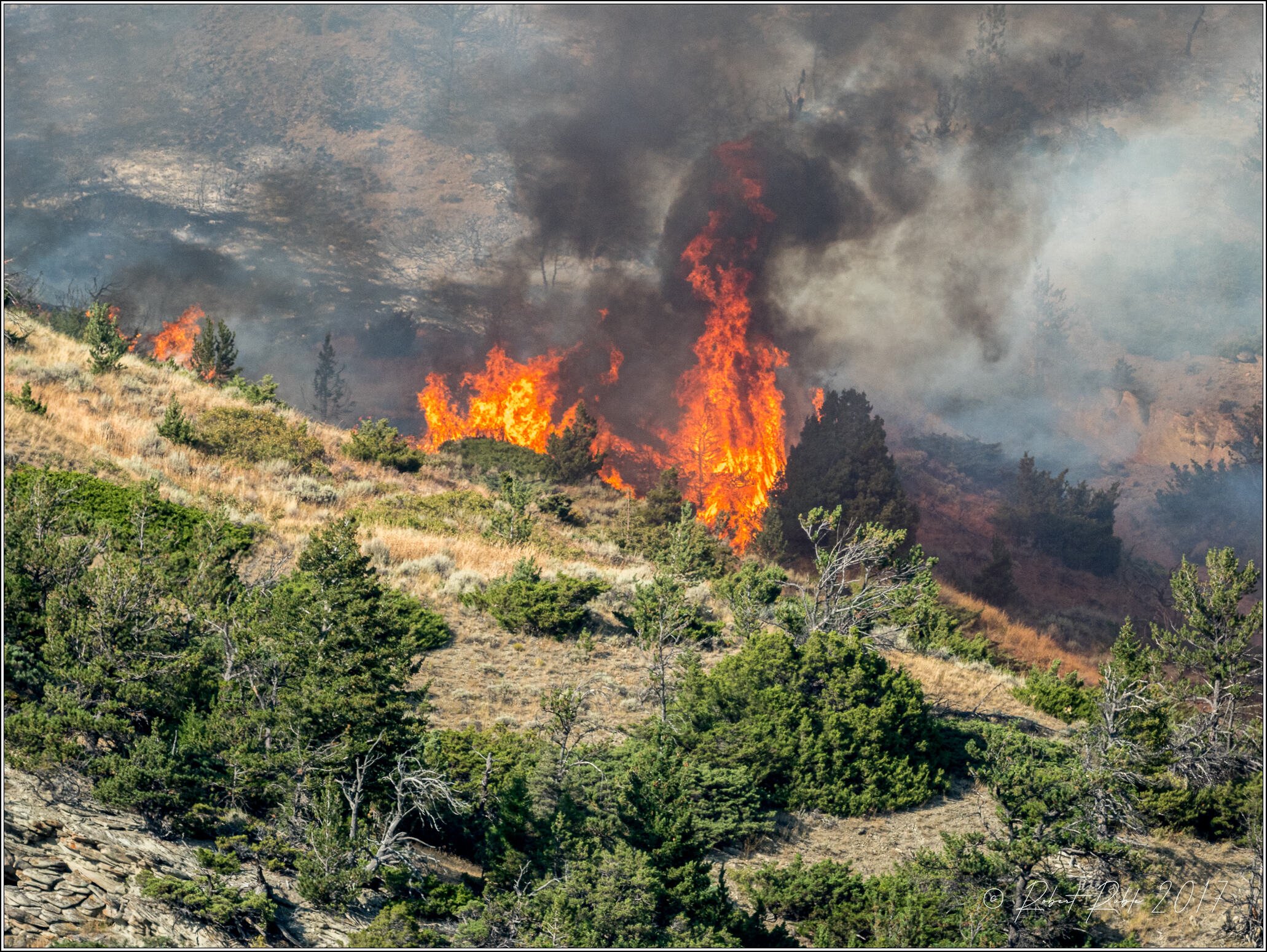Combustion
/By Erin Ruble:
We walk from the airport into smoke. There are mountains all around but you cannot see them. Roads end, not in horizons, but in brown smudges of indeterminate distance.
Light looks different, pulling the luster of sunset forward into mid-afternoon. Actual sunsets are religious affairs. Exercise is dangerous. Clouds become suspect, especially those that plume at a single point on the horizon.
This morning we watched the sun rise over Vermont’s Green Mountains before lifting off from an earth lush with water. As we flew west the land flattened and broadened like the vowels of those beneath us. By the time we passed the Mississippi, Kelly green had faded to sage and then to tan. Irrigation created strange geometries, perfect circles, rectangles, and stripes across an otherwise sinuous landscape.
Evidence of water is everywhere here: in the ripples of sandstone, the crooked paths of coulees, the cumulous clouds that stack in the sky. Water is visible in everything but itself. Step off the plane and your skin will crack and dry. Blow your nose and you will find dust and blood.
My husband and children and I return to Montana every year to visit my parents. This summer, as a hurricane drowns Houston, wildfires have spread across eastern Oregon, Idaho, and Montana. The smoke is thick enough to touch. People follow the Incident Information System, InciWeb, like news junkies watch CNN.
Grass crackles under our feet, brittle, brown, thin. My mother reports that the Ponderosa pines in the pastures hold less moisture than kiln-dried lumber. I’m not sure how anyone knows this but I do not question her.
Combustion is my parents’ favorite summertime conversation. Too frequent school fire drills have spooked my seven-year-old, though, so I ask them not to talk about it. But after a few days at my family’s vacation cabin my husband and I, coming back from a hike, see a billow of dirty white down the valley. The cabin is surrounded by mountains on three sides; the only road out is somewhere near that fire. We head back along the ridge in order to keep track of its progress. As we walk it jumps over the top of a hill and starts down the other side. Now, faintly, we can see flames.
This is a familiar threat. My sister and I used to sit in the bay window during summer nights, watching lightning pulse through clouds. Just half an inch of rain fell during the entire summer of 1988, as Yellowstone burned; by the end of August, ash capped every fencepost. Everything smelled of quenched campfires when the clouds finally broke. When I was twelve I drove our pickup through our rocky back pasture, peering over the windshield for tracks to follow, shuttling firefighting supplies to my parents and neighbors so they could fight a blaze that the city fire department refused to address. The year before my son was born a fire roared through the valley that holds my family’s cabin, missing it only by the grace of a sudden change of wind.
Now my mother calls the sheriff’s department. The fire began only an hour ago but the powers that be have learned of it already, and are sending helicopters, earth movers, even a slurry bomber. The forest service is adopting a let it burn policy when they can—lodgepole and grasses and all kinds of organisms depend on fire, and it’s too expensive to obey Smokey the Bear’s edicts anyway—but a few years ago a lightning strike just down the road burned over 200,000 acres and cost $22 million, so today they’re taking no chances.
We pack up the kids and drive down the county road to where the fire eats its way downhill. We pull off and park. Expensive ranches line the river, sagebrush bluffs giving way to emerald pastures. Someone has let their horses out and a black and white pinto trots over to us.
Helicopters drop what look like thimbles of water on the fire. Each time they seem too small to make difference, but after a moment, the orange glow dims. Bulldozers crawl over a ridge I’d swear was too steep for a horse.
My parents and son stare at the work. My daughter draws a picture in the car. I pat the pinto. A neighbor stops to pass on news. Everyone seems very calm, and in fact, by evening they will have put out the fire. When we drive home the next day, we will see miles of black stripes across the tan hills, the red stain of retardant like glowing coals.
Soon another summer will be gone.
***
Erin Ruble’s essays and short fiction have appeared in Boulevard, Green Mountains Review, Tahoma Literary Review, and elsewhere. Originally from Montana, she now lives in Vermont with her husband and children. You can find her at erinruble.wordpress.com.


